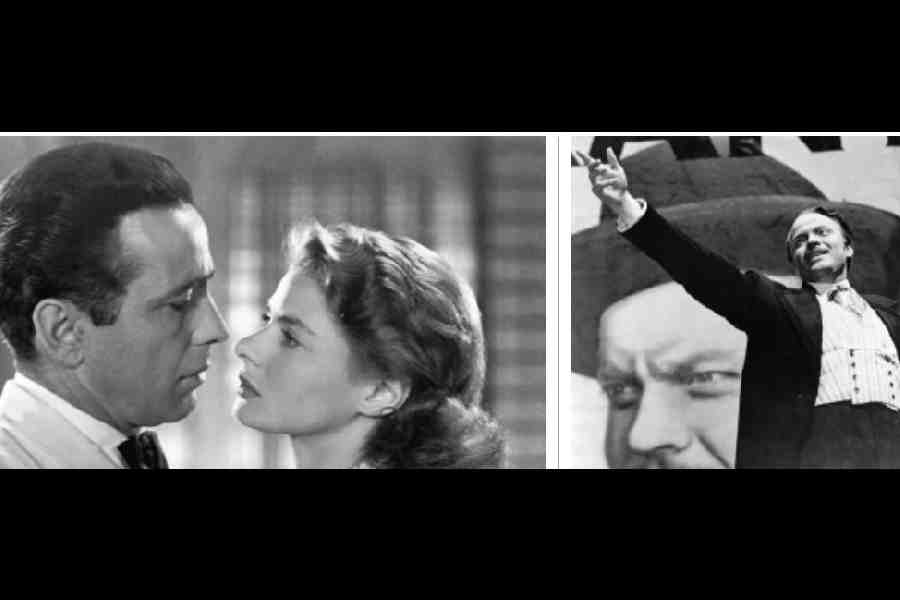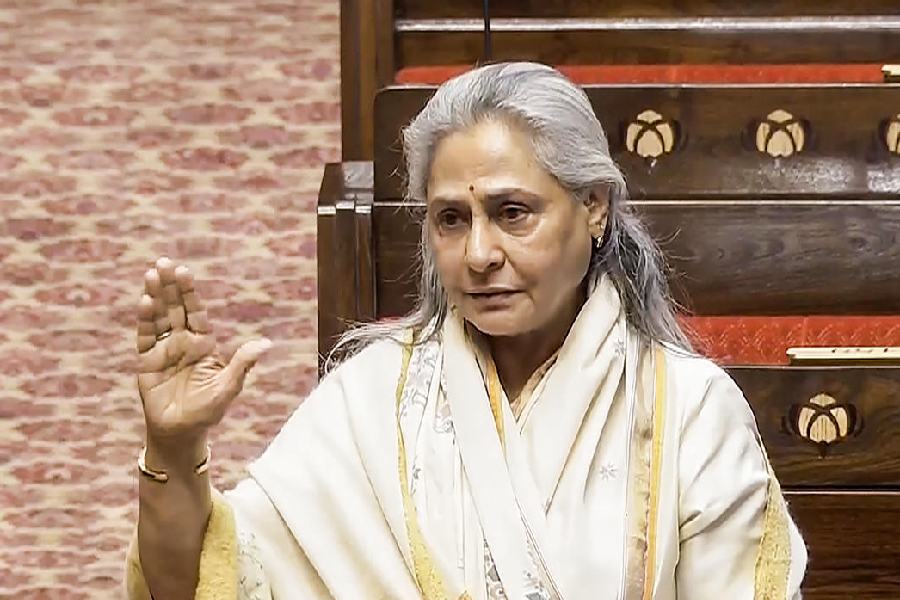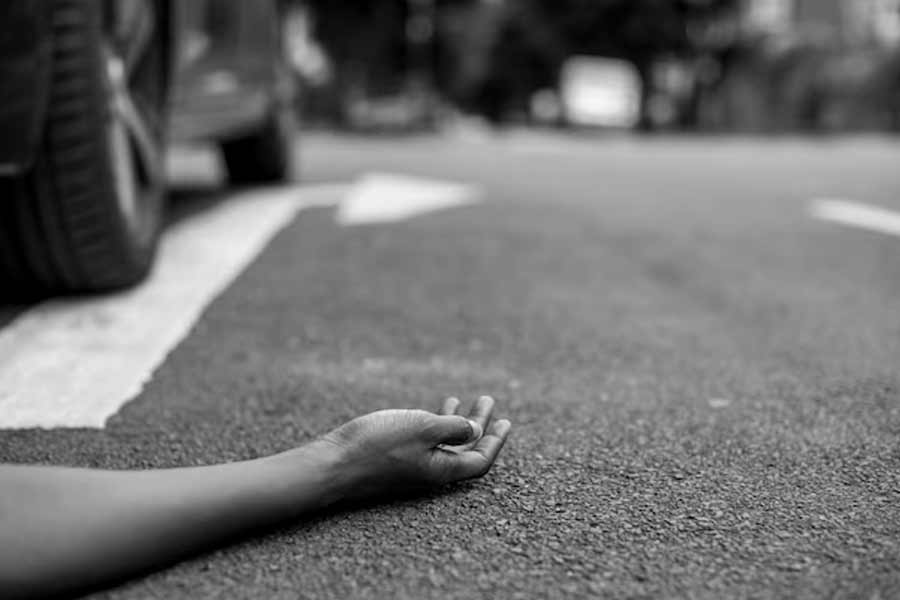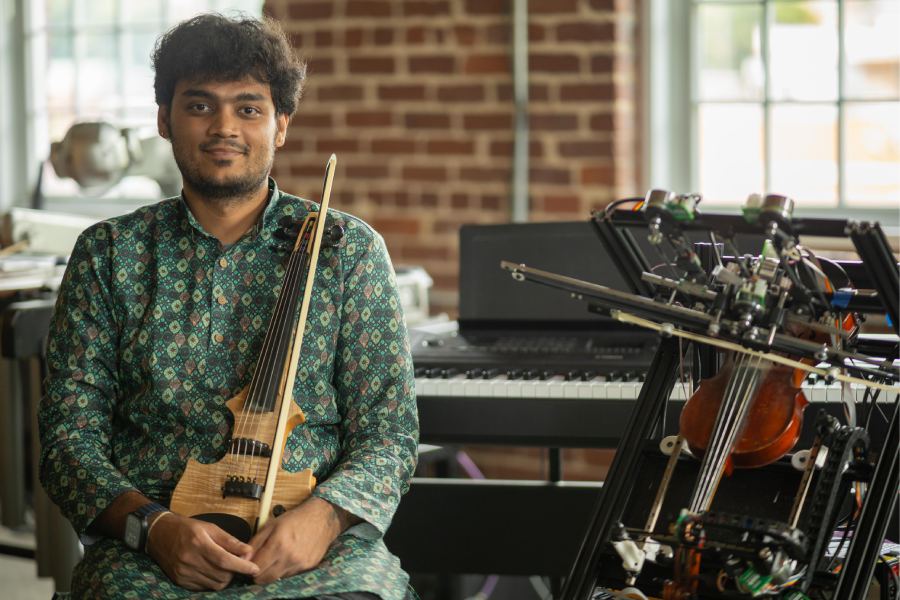Last week, the Marvel director Taika Waititi lamented the fact that he and others in his field were unlikely to be remembered. “What’s the name of the director of Casablanca? Arguably one of the greatest films of all time. No one knows his name,” he told The Hollywood Reporter. “How the f*** do I expect to be remembered?”
When I read this, I wondered if Waititi was referring to some item of vintage Hollywood arcana, like the directorial kerfuffle around Gone with the Wind. (That film was credited to Victor Fleming, but two years of preparatory work had been carried out by George Cukor, who was fired three weeks into the shoot; a further two weeks filming was supervised by Sam Wood.) But no. As I’d thought — and as the climactic frame of its opening titles makes clear, in screen-filling type — Casablanca was directed by Michael Curtiz.
Now, Curtiz might not be a household name like Walt Disney, Alfred Hitchcock or Steven Spielberg. And unlike some of his golden-age contemporaries, such as Billy Wilder, Frank Capra and Vincente Minnelli, his work also lacked a unifying style, or signature touch. Then again, perhaps his range was his signature: as well as Casablanca, he made The Adventures of Robin Hood with Errol Flynn, the seminal gangster thriller Angels with Dirty Faces, the iconic noir melodrama Mildred Pierce and the Bing Crosby-starring festive classic White Christmas. This is a director whose name means something, regardless of who can recall it.
So this is why I would like to make a proposal: mandatory film studies classes on the national curriculum, alongside English, maths, science and the rest. We need to reach these kids, and make them care about Curtiz — and Waititi too, darn it.
A profitable industry
Why? For a start, great films speak the same universal truths that all great art does: the themes of vanity, power and corruption are as pertinent in Citizen Kane as they are in, say, Thackeray. “Literature remembered becomes material to think with,” the poet Donald Hall once wrote, and the very same goes for the movies. There is no reason the cinematic canon can’t be studied with the same level of seriousness as the literary one.
Perhaps not immediately, of course — I can still vividly recall wondering what the catch was going to be when our teacher, Mr Stone, drew the curtains at the start of my own first film studies lesson and produced a VHS tape of Terminator 2: Judgment Day — but cinema’s accessibility should be seen as a boon, not a reason to write off the study of it as a doss.
That attitude prevails with Vincente Minnelli, perhaps it’s why film can only be studied at a small number of schools and sixth-form colleges in the UK. Yet moving images wield more influence than ever, and children should learn how to decode them, and understand the framing and editing techniques from which their power springs. Things have changed in another respect too: unlike in the lean pre-Blair years, filmmaking in the UK is now a viable field in which to forge a career, thanks to enormous recent infrastructure advances.
Last year alone, international film and high-end television productions spent more than £5.37 billion here, creating thousands of highly skilled jobs in all sorts of fields, from crew to visual effects. Naturally, The Crown and Bridgerton were made here — and so were Barbie, Mission: Impossible, Napoleon and the tenth Fast & Furious. Filmmaking is now one of our national industries — and we’re so good at it, capacity is still outstripped by demand.
But, of course, you don’t have to want to forge a career in the industry to benefit from cinema. An appreciation of the art form can be a life-long pleasure, and it’s never too soon for a parent or guardian to start assembling the cognitive framework, either. Since children will watch absolutely anything, they’ll watch absolutely anything: silents, subtitles, documentaries, and musicals are all in play.
Attention spans in schools are apparently flagging
Slapstick comedy is a shoo-in, from Buster Keaton to Jacques Tati. I remember my eldest at two, gurgling with delight at Hulot dropping a glass jug in French comedy Mon Oncle, while my youngest brings up the booby-trapped billiards scene in Sherlock Jr at least once a month.
Hong Kong action films like the Police Story series and Freed Unit musicals like Singin’ in the Rain and An American in Paris are two sides of the same eye-popping coin: studio-bound artifice and artistry in balletic accord. Italy’s postwar strife becomes vividly graspable in Bicycle Thieves; as does Japan’s in My Neighbour Totoro, where trees explode up from the ground like anti-mushroom clouds, rewinding the country to its greener, wiser past. As for more modern options, we’ve already done a few Wes Andersons: next, perhaps I’ll try them on a beautifully touching Kiwi adventure from 2016 called Hunt for the Wilderpeople, written and directed by one Taika Waititi.
We heard yesterday that attention spans in schools are apparently flagging. A survey of 504 primary and early years teachers found that 84 per cent believed the Covid lockdowns had left their pupils struggling more than ever to focus in class. And that reminded me of another recent study by University College London’s department of experimental psychology, which found that watching films as a collective activity improved memory, focus, productivity and overall brain function. Might regular doses of classic cinema be exactly what these youngsters need?
As one man once said to another on a foggy north African runway, it could be the beginning of a beautiful friendship.











